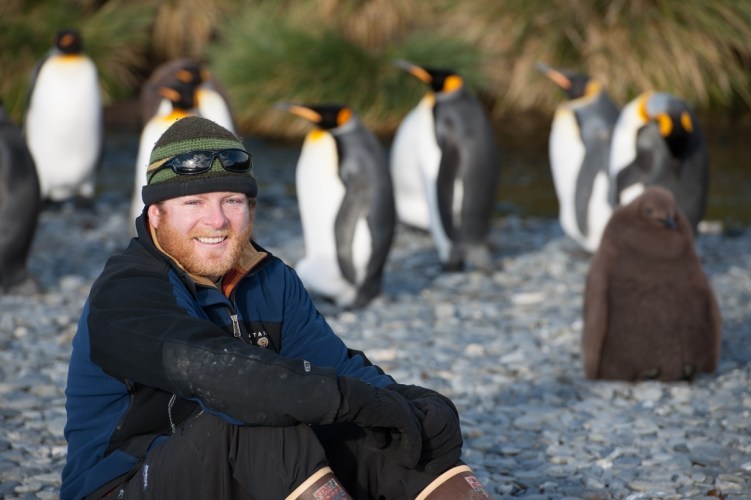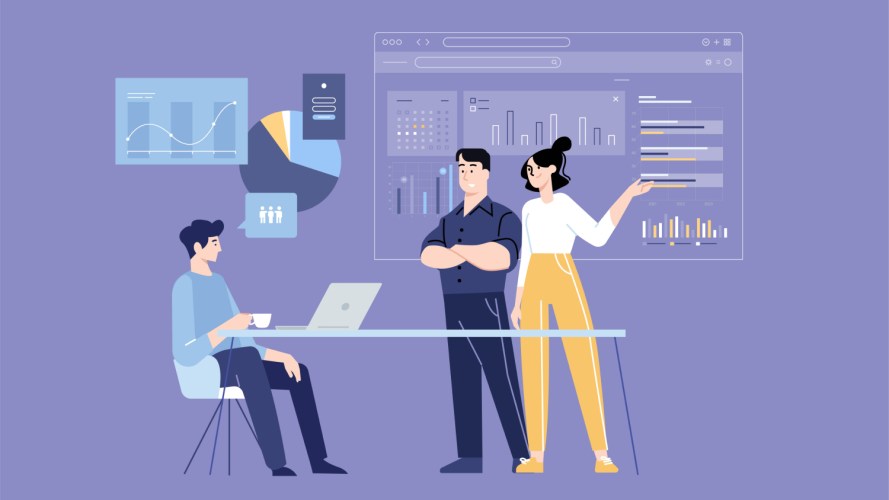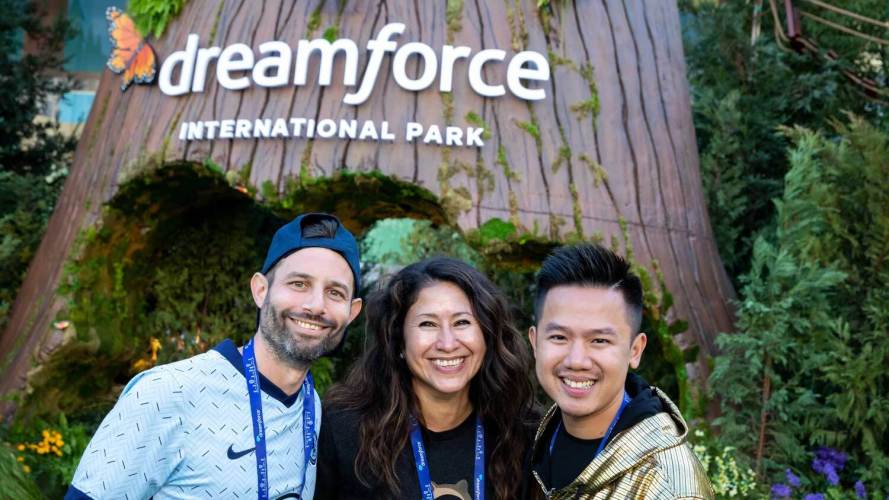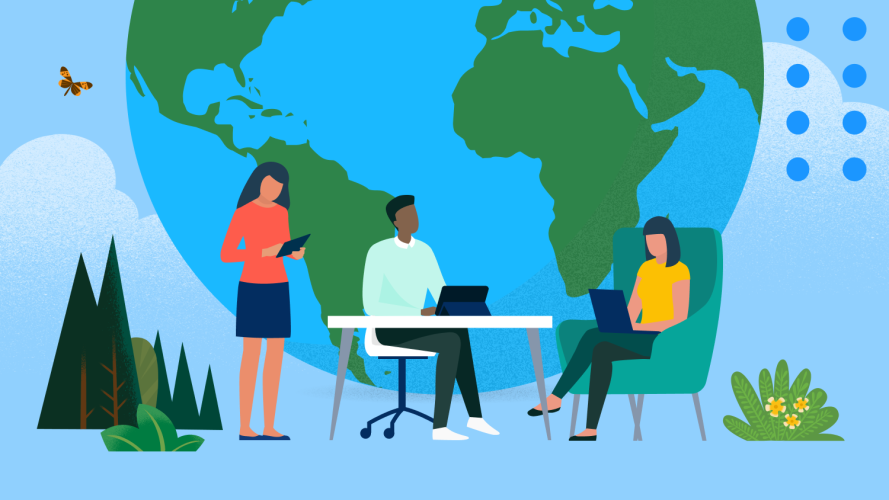How PwC Is Overcoming AI’s Biggest Hurdle — Trust
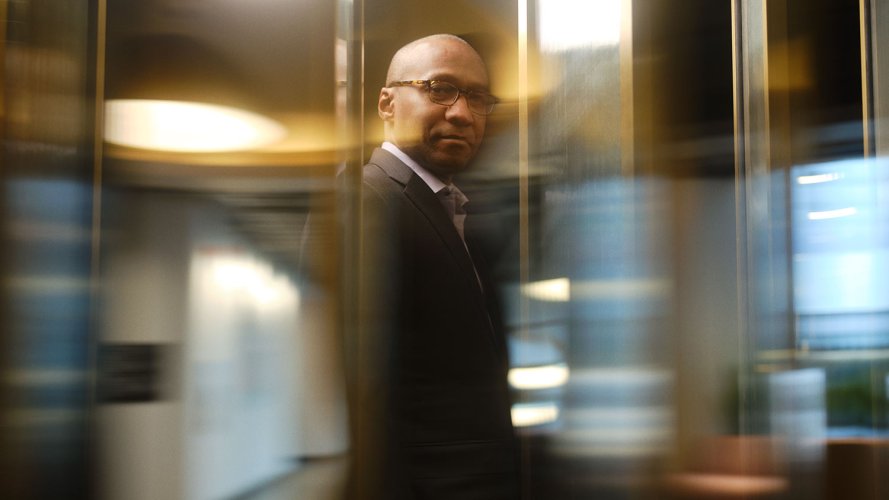


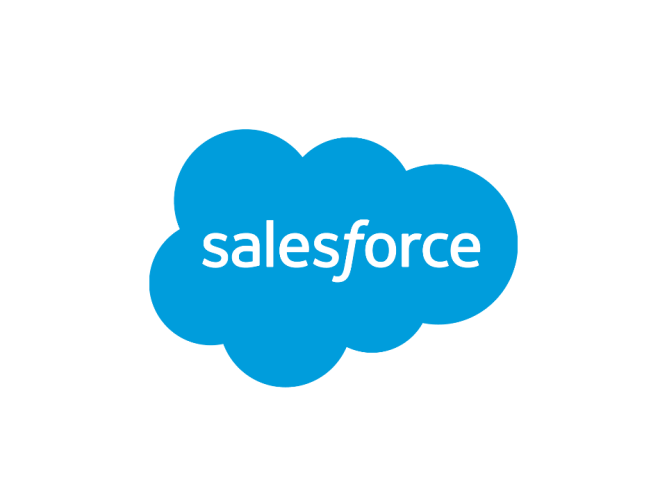
Salesforce Staff
Mohamed Kande has made a career shepherding companies to new business heights, often by helping them implement the latest and most promising enterprise technologies. But a few years ago, Kande, who now serves as a vice chairman of PwC, found himself puzzled: Why weren’t more companies successfully implementing artificial intelligence?
It’s no secret that artificial intelligence helps guide smart business decisions everywhere from the marketing department to the warehouse. In a thousand invisible ways, the technology allows businesses to allocate their resources more precisely. And yet there remains a great deal of skepticism surrounding it. A 2020 survey by Pew Research found that 44% of Americans see the development of artificial intelligence as a “bad thing.”
This article appears in Vantage Point, a Salesforce magazine



Today, the biggest barrier to widespread AI is not the technology, Kande said — that part is available and ready to implement. It’s the psychological baggage that’s holding it back.
“Trust in AI is a big thing, the same way you trust the manufacturing process that delivers a high-quality car,” he said. “So if it’s your favorite car, manufactured by that car company, we trust their manufacturing process and we trust the car that comes out of it.”
But a car is something we can see, touch, and feel. Even if we don’t know exactly how the engine works or how its parts are put together, we generally have a good sense of what it’s supposed to do: take us, safely, from point A to B. What Kande soon realized is that technologies like AI, despite their business-transforming potential, are a different story altogether. For one, they are invisible. This leads to many justifiable questions, even for folks who are generally well versed in the technology.
“Can you trust somebody’s AI?” asked Kande. “Can you trust the algorithm that they have? Can you trust that it won’t be biased? Can you trust that it won’t be creating collateral damage?”
Turning trust into a business offering
His realization that AI’s biggest hurdle wasn’t tech, but trust, led Kande to broaden his scope. Historically, business leaders had largely engaged with trust as a philosophical and blue-sky question. But today, amid the intersection of COVID-19, the rising purchasing power of Gen-Z, and the ongoing talent crisis, Kande has recast this big nebulous trust question and transformed it into a tangible, well-funded, and critical component of PwC’s business.
“A couple of years ago, we came to the realization that trust was actually the currency that the most successful companies could use to attract the talent, to attract the resources that they need,” Kande said. “Investors won’t invest in you if they don’t trust what you’re going to do with their money. Talent will not come to you if they don’t trust that you’re actually running a corporation with the right set of values.”
PwC’s gleaming coworking spaces, although largely empty, are a clear sign of PwC’s confidence in its own ability to attract and retain the very best talent, even amid one of the tightest labor markets in recent history. But PwC believes it has earned the trust to be bullish: The firm has cemented its name providing complex audit and assurance services, helping corporations deliver watertight financial outcomes for more than 150 years.
Now they’re helping many of the same clients meet equally rigorous social and environmental goals, investing $300 million over the next three years in new services and a trust leadership institute. One difference between the old auditing work and the new trust work is that many companies talk a big game about environmental, social, and corporate governance (ESG), but few have the infrastructure or strategic vision to actually back it up.
“The eye-opening moment for us was to see a lot of companies making statements to stakeholders about what they stand for regarding diversity and inclusion, or their position on their carbon footprint. But they didn’t have a plan to manage this continuously,” Kande said.
This is how trust can be earned in AI: gradually, continually, and through the hard work of companies willing to adopt standards based on rigorous transparency.
“I think companies should differentiate themselves to get access to resources, to have consumers buying their product,” Kande said. In an interview, he held up a soda can to demonstrate. “We’re talking about companies that will have a label, like a QR code, that you can scan with your phone and learn the origin of the aluminum they use. Everything, including which mine it came from. People are going to ask for this, because they’re saying that if you don’t give me that, I’m not actually buying your product.”
Distilling trust to its core components
While building trust on an enterprise-wide level may require the counsel of a firm like PwC, Kande believes it starts on a much more personal scale. His own presence warm and disarming, Kande comes off as a leader who takes his work seriously, but not himself. He may be an engineer by trade, comfortable with schematics and machines, but confidence and rapport come naturally to Kande. His personal maxim: Don’t judge people, and trust in yourself.
Kande faced an early test of that maxim during the summer of 1987, when he began an engineering internship in a remote city 600 miles north of Montreal—and nearly 5,000 miles away from his native Cote d’Ivoire, where he believes he was the only Black person among the population of 50,000.
“The first month, literally, nobody talked to me, except the people at work,” he said.
After the internship, Kande got his first job in Chicago. At that time, his beginner’s English meant he needed extra time to read emails, often could not keep up with what was said in meetings, and had to compensate by focusing on people’s body language and emotional affect. Kande recently wrote about this challenging period of adjustment in a widely circulated LinkedIn post.
“What I didn’t say in that LinkedIn post is that I failed a lot,” Kande said. “But I trusted the fact that, as I was failing and making mistakes, I was learning. I had trust in myself.”
Kande believes failing and learning is something more companies should embrace as they work to build trust with employees, customers, and partners. Those expecting a turn-key set of instructions or a build-trust-quick framework are out of luck.
“Building trust and sustaining trust is an ongoing effort. You don’t get closure on it,” Kande said. “Many leaders I know are used to solving problems: I have a problem, here’s a solution, I move on. They get that instant gratification that comes from taking care of a problem. But what if there’s no such thing as taking care of a problem? It’s managing the situation all the time.”












